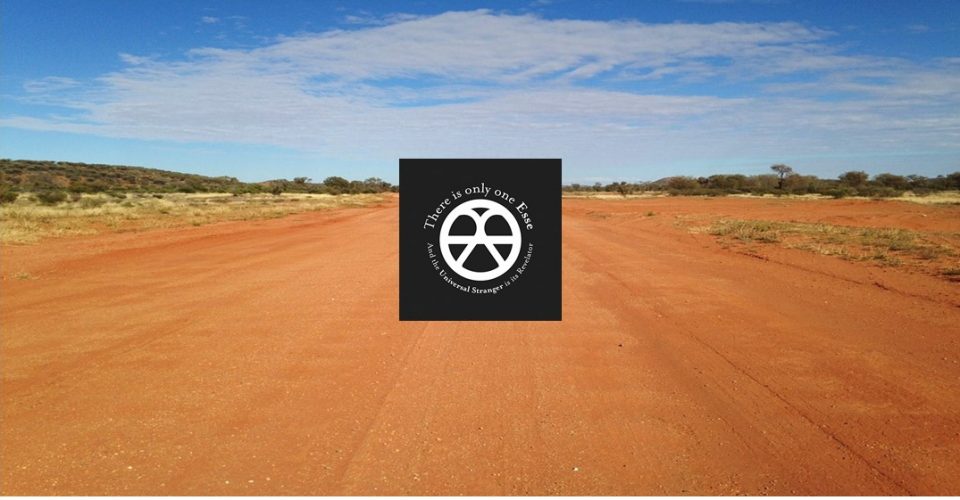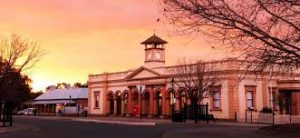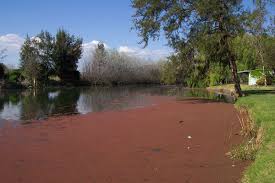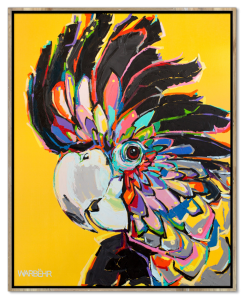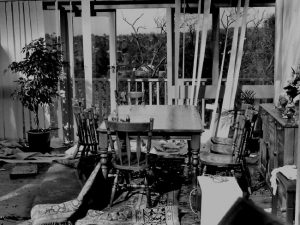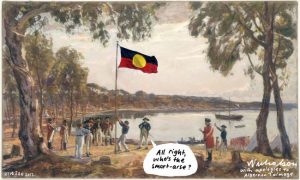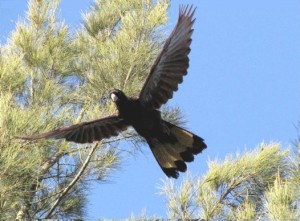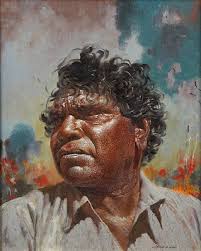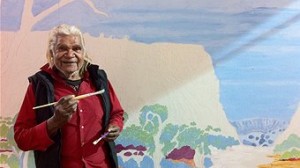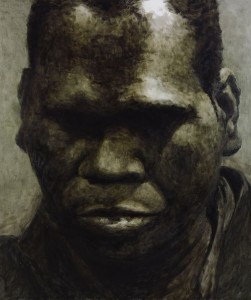Some moments come to you as a gift. On a visit to Mudgee at the weekend I found a café tucked away in a courtyard behind one of the main streets. As in most Australian country towns, the shops were closed on Saturday afternoon, so the café was quiet. A middle-aged woman sat alone, reading her Kindle, on one of a suite of faded armchairs arranged around a low table which effectively formed the centrepiece of the outdoor seating area. I took a side table next to the door of the café interior, close to a speaker that relayed a tasteful selection of modern country blues. The staff – all women – were friendly and I ordered a large flat white and a slice of fruit loaf. Sparrows pecked at the uneven cobbles and flew up to perch on the bare vines that hung overhead, watching for the next opportunity to snatch a crumb. I waited for them to pounce.
“Look at you, enjoying the peace and quiet,” said the waitress as she set down my coffee.
“It’s an oasis,” I said. “And I love the music.”
Mudgee is a typical Australian country town of wide streets and low colonial buildings where church spires are still the tallest structures you can see, until your eye wanders to the blond-green hills beyond them. The old rural and gold-mining economy of the surrounding area has been replaced by vineyards and olive groves, and wine bars and restaurants specialising in local produce alternate with older, less glamorous businesses such as pubs, Thai massage parlours and thrift shops. In the quieter enclaves, several retail premises stand empty.
Old Telegraph Station and Post Office, Mudgee
On this afternoon, Saturday or not, the main street had a lively atmosphere, thanks mainly to the al fresco winers and diners. At one end of the street, close to where the Cudgegong river cuts through the town, a saddlery stood opposite a wine bar offering live music. The shop was open and I wandered in, drawn by the wholesome smell of leather.
Cudgegong River, Mudgee
“Where you from, mate?” Behind the counter an old lady sat hunched over a sewing machine, rapid-fire strafing a horse blanket with needle and thread. Her red leathery skin made her hair seem whiter than it really was.
“Sydney.”
She nodded, as if to say, “Thought so.”
“I’m normally closed at this time, but I’ve got so much to do.”
At the other end of the street, and at what seemed to be the far end of the town’s cultural spectrum, I found the Mudgee Art House, run by a painter called Warwick Behr. He signs himself Warbehr. I bought a print of his painting of a black cockatoo—a mysterious and iconic Australian bird, reimagined as a splash of psychedelic colour.
Black Cockatoo on Mustard, by Warbehr
